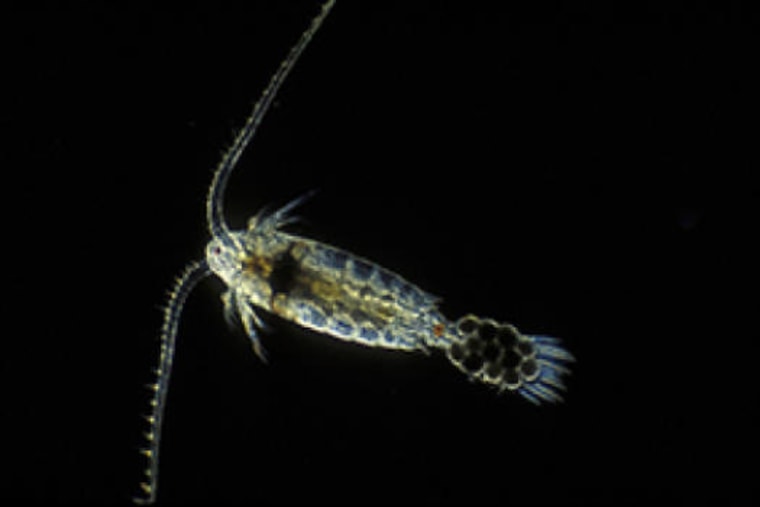
Tiny sea creatures that play a big role in the ocean food chain are unable to adapt to warming oceans, according to a new study that may have profound ramifications for fisheries.
The cold-water plankton lives for one year or less. Researchers examined a 50-year dataset from the North Atlantic to determine how this creature and another plankton that thrives in warmer water fared over half a century.
"Lots of people have speculated that animals with short generation times will simply adapt to change," Graeme Hays, a marine scientist at Australia's Deakin University, told NBC News in an email. "We show that is not the case."
The range and abundance of the cold-water plankton, Calanus finmarchicus, declined while the warm-water species, C. helgolandicus, expanded its range and increased in abundance.
That shift may have "profound" implications for fish that eat the cold-water plankton, such as cod and hake, as well as for the livelihoods of people who catch and sell these fish, Hays and his colleagues note in a paper accepted for publication in the journal Global Change Biology.
That's because the warm-water species that is filling the niche vacated by the cold-water plankton "is abundant at the wrong time of year" for cod and hake, Hays explained. "So, it is not available as food for the developing fish larvae."
What's more, while the study was based on available data from the North Atlantic, the findings are probably applicable to the rest of the world's oceans — given the fact that closely related species of plankton are distributed globally, and "ocean temperatures are warming pretty much everywhere," Hays said.
In their study, Hays and his colleagues note one bright spot: Over time, the surging abundance of the warm-water plankton "will likely play a role in the emergence of new fisheries for warm-water species."
In addition to Hays, the authors of "Multi-decadal Range Changes vs. Thermal Adaptation for North East Atlantic Oceanic Copepods in the Face of Climate Change" include Stephanie Hinder, Mike Gravenor, Martin Edwards, Clare Ostle, Owen Bodger, Patricia Lee and Antony Walne.
John Roach is a contributing writer for NBC News. To learn more about him, visit his website.